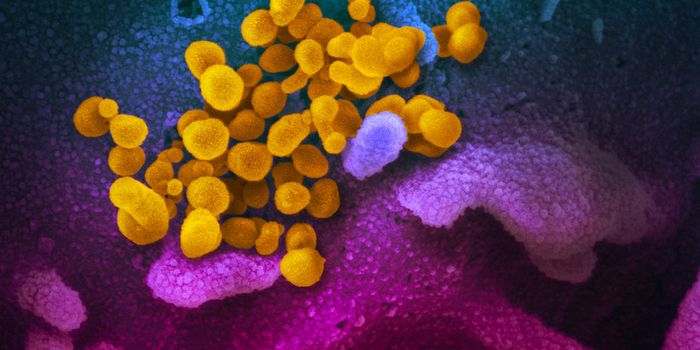Salmonella Strains From Africa Have Evolved to be Deadlier
Salmonella is typically associated with food poisoning in the United States, but Salmonella infections in sub-Saharan Africa can result in meningitis and deadly infections of the bloodstream that are often resistant to drug treatment. Reporting in Cell Host & Microbe, scientists have determined how those bacterial strains, African nontyphoidal Salmonella or NTS strains, escape the confines of the digestive tract and disseminate throughout the body. They found that African NTS strains lack a bacterial gene, ssel, and that has enabled them to gain control of immune cells efficiently, giving them the power to move in bloodstream to organs.
"Our findings underscore that genetic changes in the bacteria, as well as the underlying susceptibility of the host population, are important for the severity of these invasive Salmonella infections in sub-Saharan Africa," said the senior author of the study, Denise Monack of Stanford University School of Medicine. "Since our work highlights the role of genetic differences in Salmonella in driving disease, this supports the need for better diagnostics and a vaccine to protect against these infections."
Most pathogenic Salmonella remains in the gut and sickens the host with food poisoning, while some can give rise to typhoid fever. The African NTS strains have evolved in ways that resembles the Salmonella that can cause typhoid. Drug resistance coupled with susceptible populations has meant these dangerous bacteria have colonized the continent. Many patients die from these infections, especially those that are infected with HIV or malaria, or are suffering from malnutrition.
Monack's team wanted to understand the genetic characteristics of the Salmonella strains that cause food poisoning and compare them to the African NTS strains. The NTS bacteria efficiently hijacked dendritic cells of the immune system to move around the body because of the lack of a ssel gene, which had been thought of as a virulence factor. Other Salmonella strains that don't express the ssel gene have been found to also cause systemic disease, suggesting the gene is related to a mechanism used by pathogens to adapt to host conditions.
"What was surprising to us was that the loss of an apparent virulence gene, sseI, did not make the pathogen less virulent, and actually increased its ability to expand to new sites within the host," explained first author Sarah Carden, also of Stanford University School of Medicine. "Usually we think of losing virulence effectors as making the pathogen less virulent, or that the virulence effector was lost because it was no longer needed for a particular host or niche. However, in this work we found that losing the virulence factor can help drive the evolution of niche adaptation and expansion."
The researchers are continuing to study sub-Saharan African S. Typhimurium in an effort to understand the molecular mechanisms and changes that give rise to meningitis and bloodstream infections. "Continued work in this area could help form the building blocks for new diagnostic tools or vaccines to help combat these invasive Salmonella infections in sub-Saharan Africa," Monack said. "Additionally, by better understanding how Salmonella evolves to cause systemic disease in humans, we can better assess how dangerous emerging strains or outbreaks of Salmonella might be and mount the appropriate public health response."
In the video above, you can learn more about various Salmonella bacteria.
Sources: AAAS/Eurekalert! via Cell Press, Cell Host & Microbe









